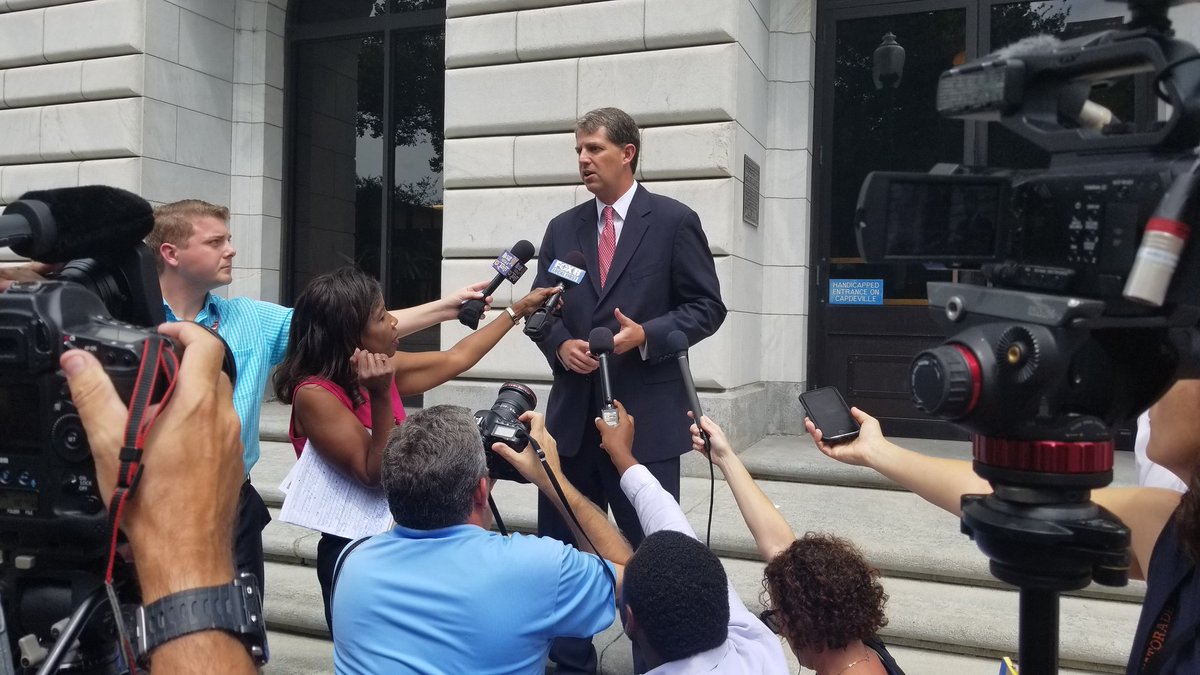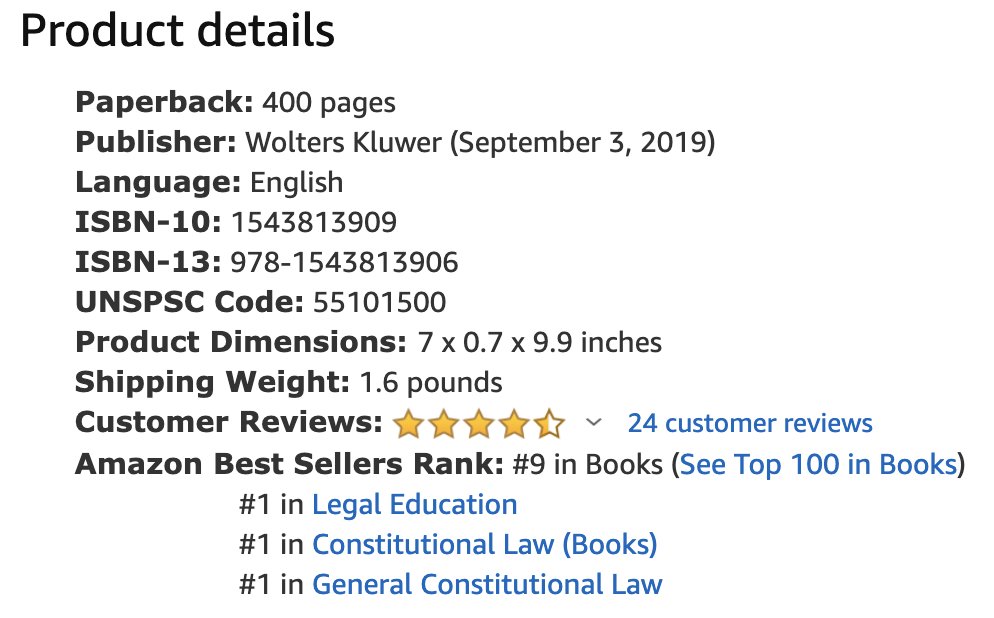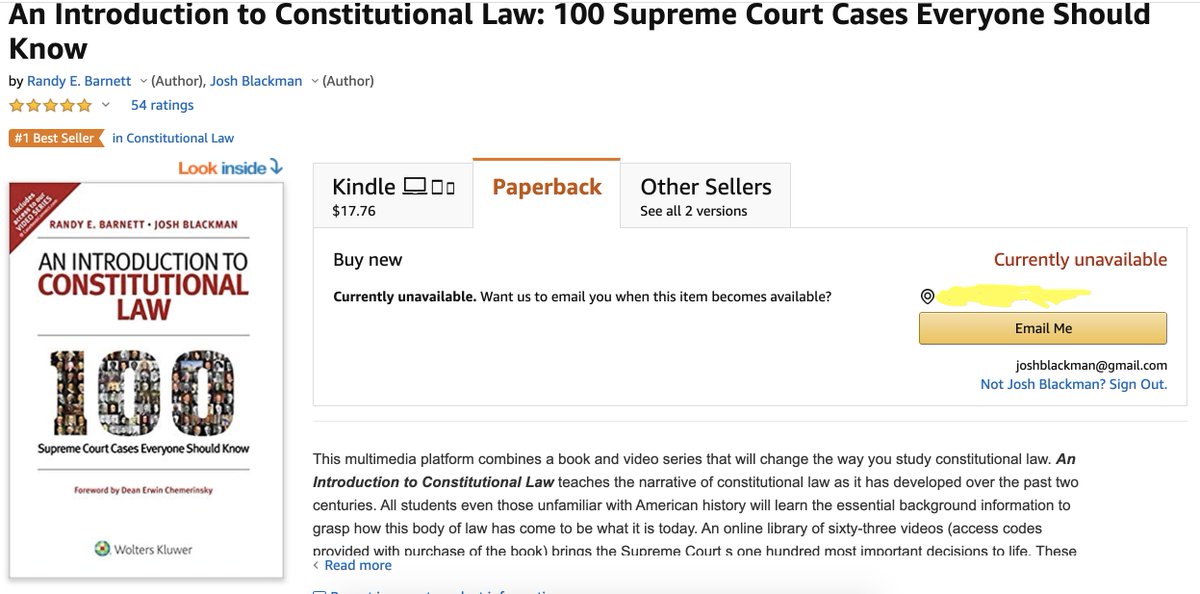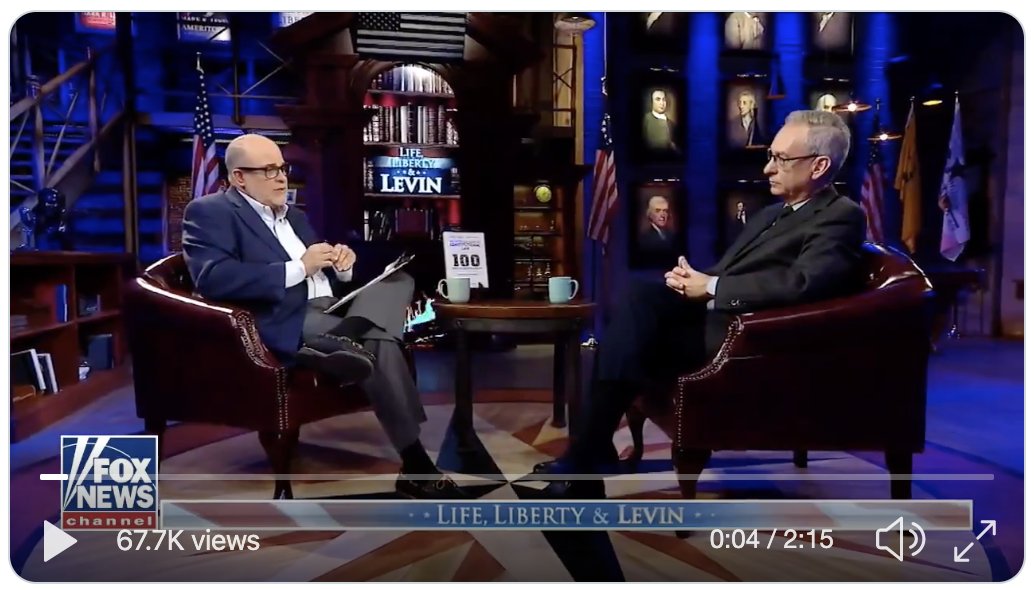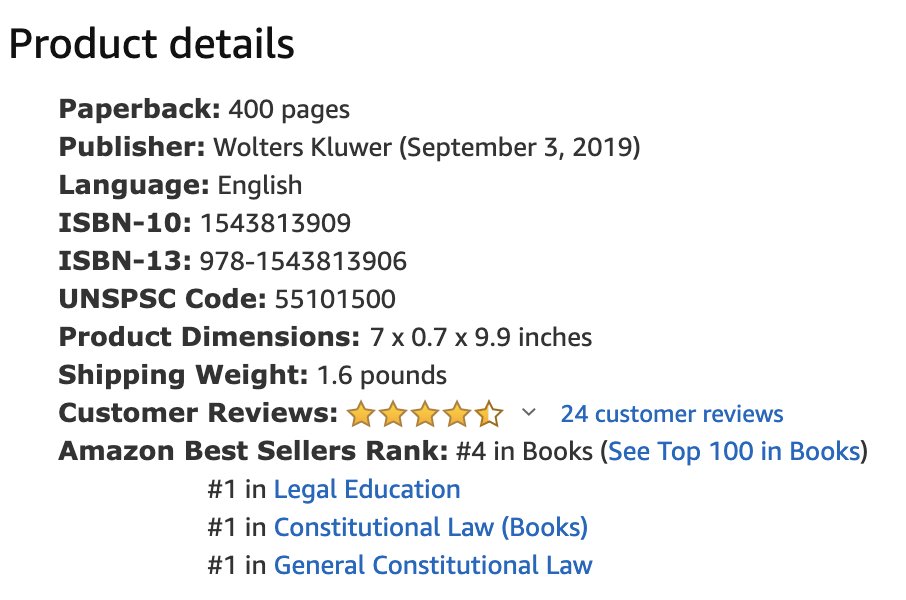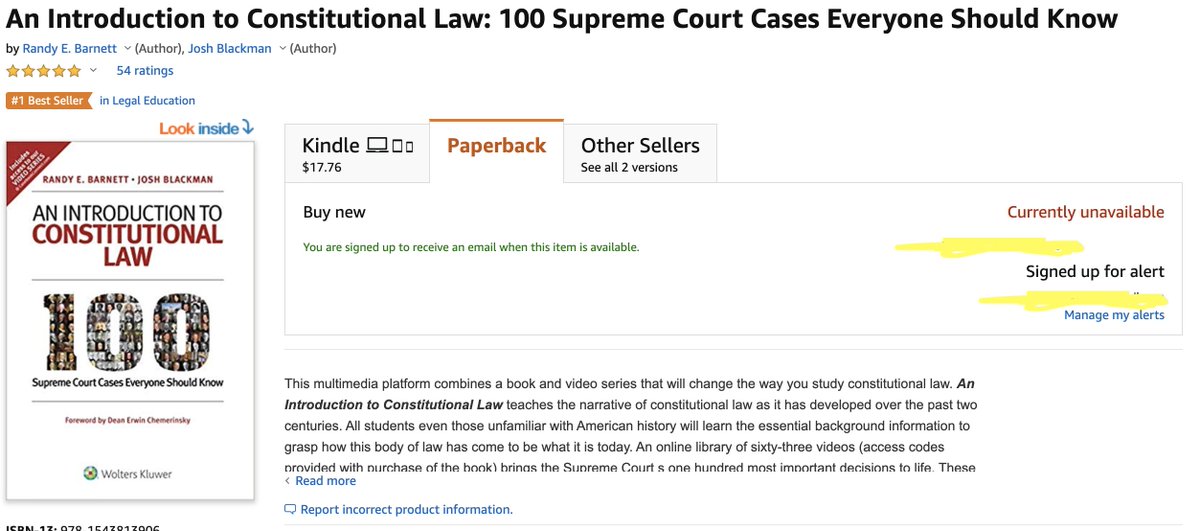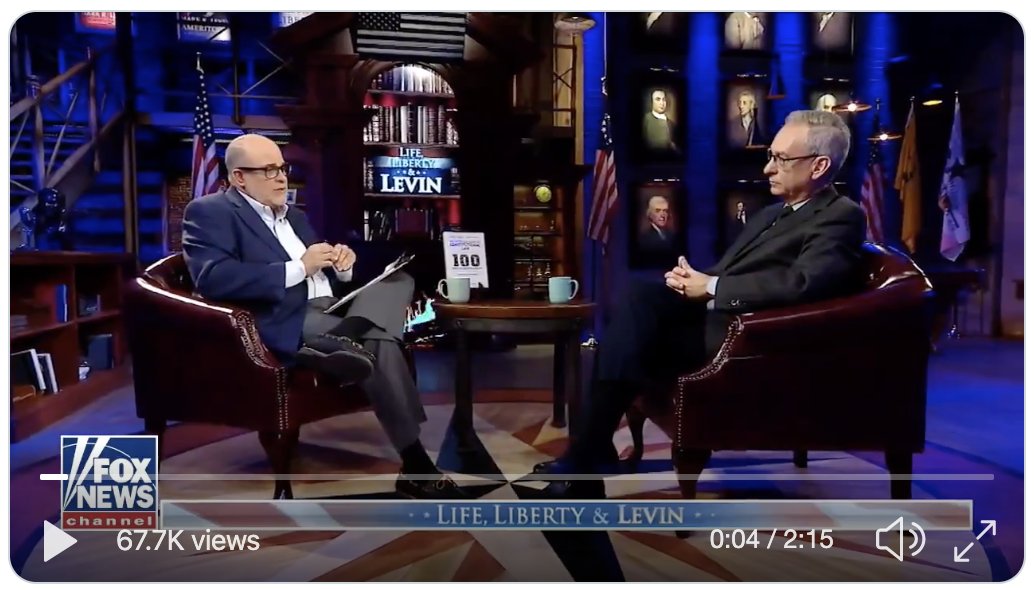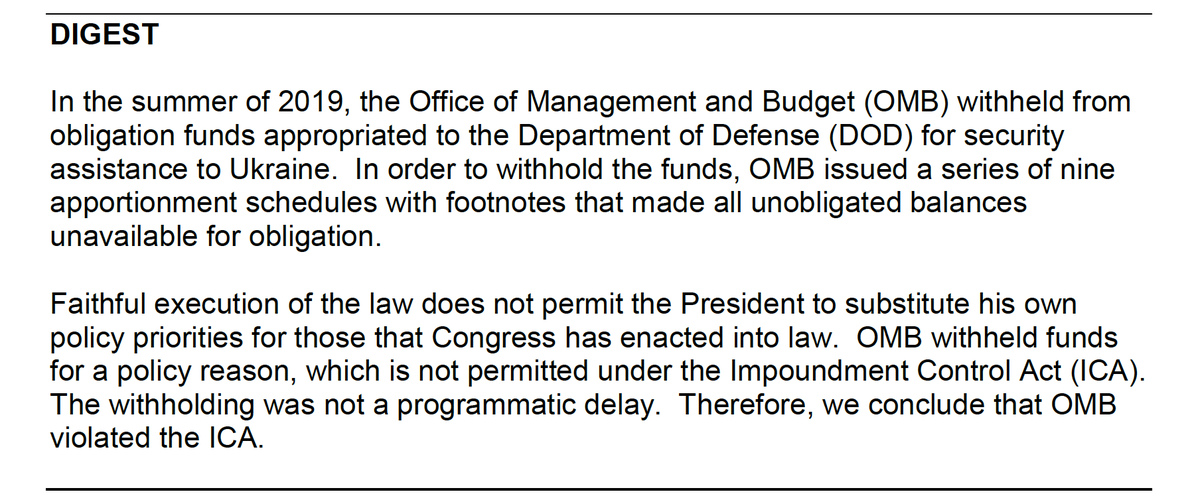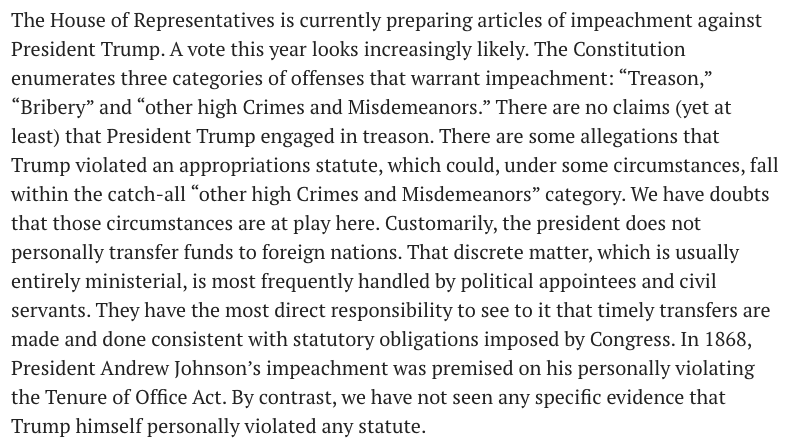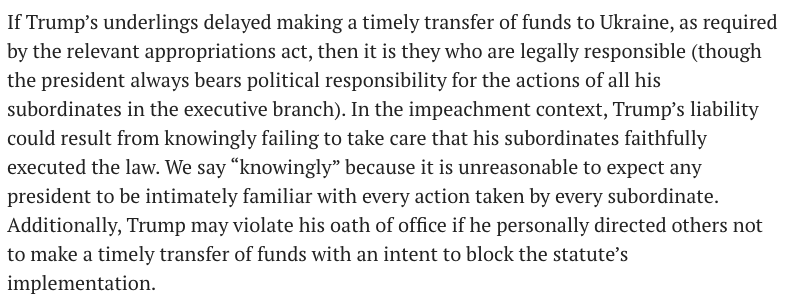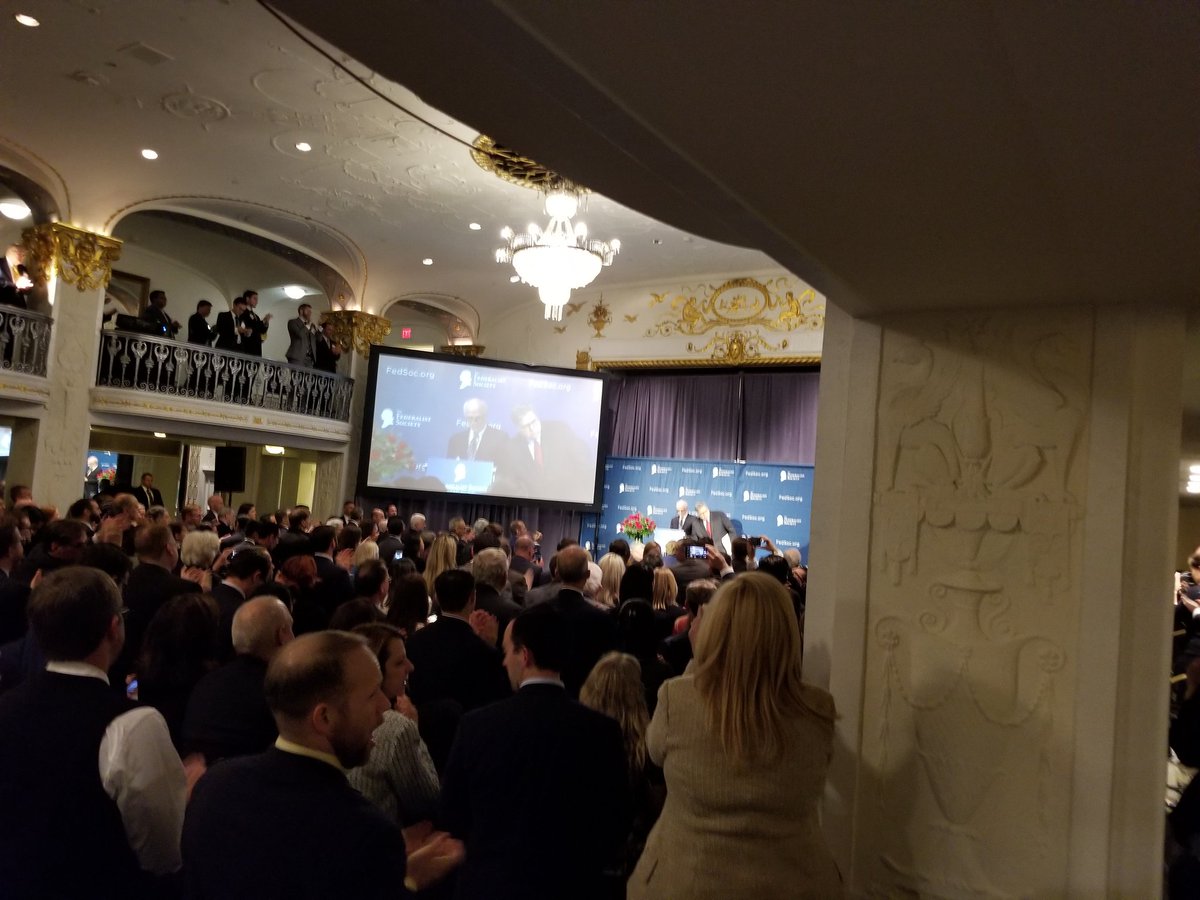1/ The hearing lasted about 100 minutes. Judge King did not ask a single question throughout the proceeding. Judges Elrod and Engelhardt were very active throughout the entire proceeding.
2/ First, with respect to standing, the panel seems to agree that the individual Plaintiffs have standing. Judge Elrod referenced the question Justice Kagan asked during NFIB oral args. (@RandyEBarnett and I flagged that point in our post yesterday). reason.com/2019/07/08/nfi…
3/ @robhenneke of @TPPF read the entire exchange from the first day of oral arguments: the Plaintiffs had standing, based solely on the mandate, and not the penalty.
4/ J. Elrod asked if there was any discussion of standing in NFIB. @robhenneke said there was not, but it was implicit in the Court's ruling. I agree. NDFL made express findings that the mandate inflicts a pocketbook injury. And that was the only basis for standing
5/ DOJ agreed that the private plaintiffs have standing on the basis of that pocketbook injury. It is difficult to read Part III.A of NFIB any other way.
6/ Lawyers for the House and California maintained that the ACA always provided a choice: buy insurance or pay a tax penalty. Therefore, now that the penalty is gone, there is a choice between buying insurance or nothing.
7/ TX argued (like @RandyEBarnett and I) that this reading of NIFB is correct. The mandate wasn't "resuscitated" (an absurd claim we never made). Like the parrot in Monty Python, it has been dead all along. Part III.A found the mandate was unconstitutional dailymotion.com/video/x2hwqnp
8/ Texas SG Kyle Hawkins nailed the distinctions between III.A, III.B, and III.C. III.B and III.C, which were premised on the saving construction are no longer relevant. J. Elrod suggested that those parts should be severed. I agree.
9/ We are left only with Part III.A, which found that the most natural reading of the mandate was that it was a command. Congress lacks the power to issue that command.
10/ The most complicated portion of the argument focused on the remedy. My read: the court follows DOJ's lead, and affirms, and remands to the District Court to figure out which provisions in fact injure the Plaintiffs
11/ DOJ's position was hard to follow but I think it can be stated in this way: a finding that the entire statute is unconstitutional is only a threshold determination. The district court then needs to find which specific provisions injure the Plaintiffs, and should be enjoined
12/ I think this position is consistent with J. Thomas's concurrence in Murphy. House Lawyer said that the 5th Circuit should decide the severability question, and not remand.
13/ J. Elrod said in any other "normal" case, there would be a remand. (This case is indeed far from normal). I think the remand is the most likely outcome, following an affirmance on the merits.
14/ The 5th Circuit will post the oral argument audio in about an hour. I will have a much more detailed writeup at that time.
15/ Final word of advice: please avoid tweeting hot takes until you've listened to the entire argument. There are some provocative questions that were merely setups to more mundane followups. (Preview: one question involved Congress passing, and Trump signing, new legislation)
16/ Listen to the entire proceeding. There is some fantastic advocacy all around. Doug Letter (lawyer for the house) said "This is why I became a lawyer." Agreed.
17/ 5th Circuit Oral Argument page is flooded (Flashbacks to SupremeCourt.gov on day NFIB was decided) ca5.uscourts.gov/oral-argument-… 

18/ I've uploaded the oral argument here: soundcloud.com/josh-blackman-…
19/ I agree with @ssamcham Most of the provocative questions about the political process (the Senate, Trump, etc.) came in the context of whether the House has standing--a very live question after Bethune-Hill.
https://twitter.com/ssamcham/status/1148801813317111810
• • •
Missing some Tweet in this thread? You can try to
force a refresh




